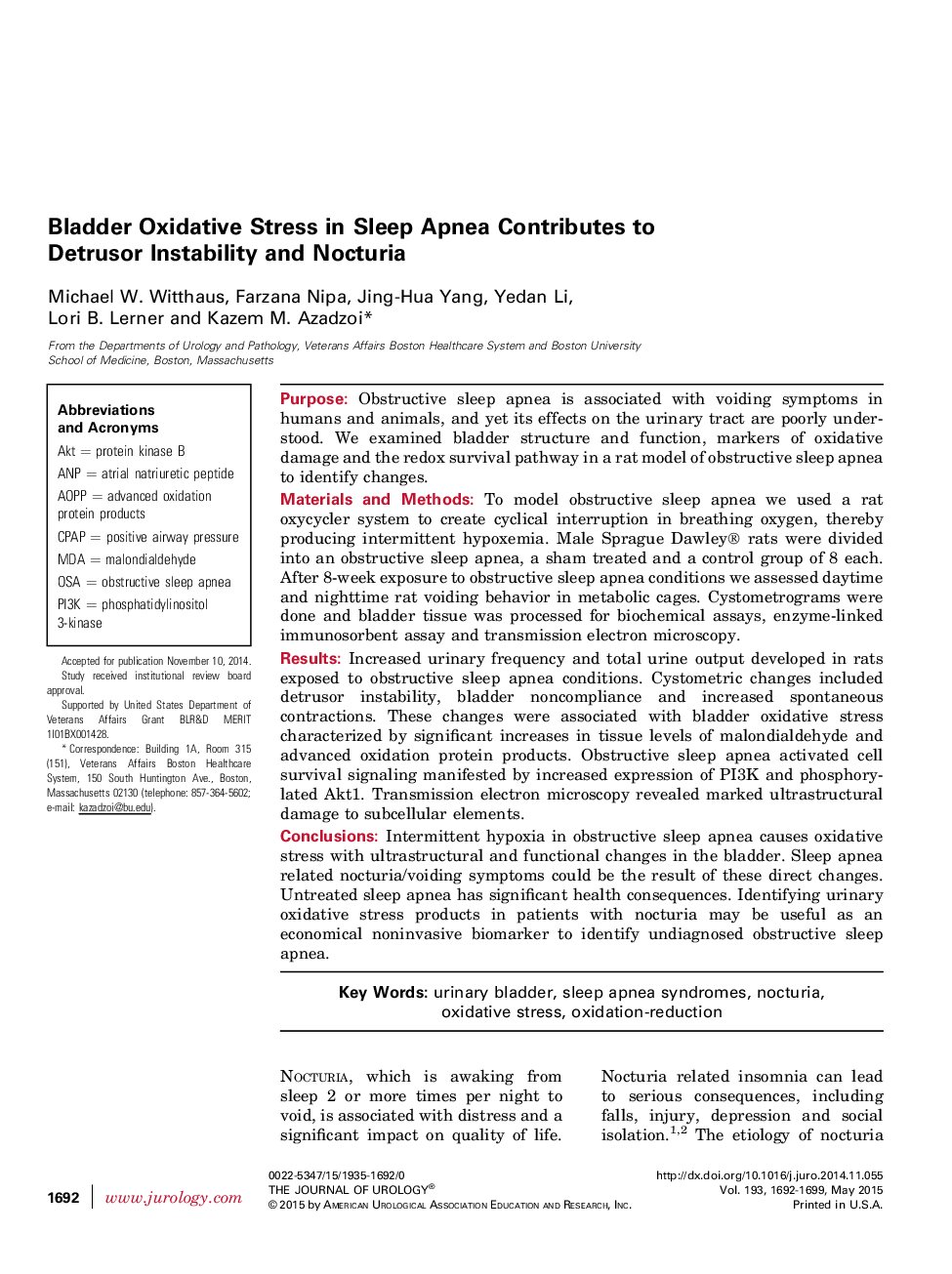| کد مقاله | کد نشریه | سال انتشار | مقاله انگلیسی | نسخه تمام متن |
|---|---|---|---|---|
| 3858721 | 1598890 | 2015 | 8 صفحه PDF | دانلود رایگان |

PurposeObstructive sleep apnea is associated with voiding symptoms in humans and animals, and yet its effects on the urinary tract are poorly understood. We examined bladder structure and function, markers of oxidative damage and the redox survival pathway in a rat model of obstructive sleep apnea to identify changes.Materials and MethodsTo model obstructive sleep apnea we used a rat oxycycler system to create cyclical interruption in breathing oxygen, thereby producing intermittent hypoxemia. Male Sprague Dawley® rats were divided into an obstructive sleep apnea, a sham treated and a control group of 8 each. After 8-week exposure to obstructive sleep apnea conditions we assessed daytime and nighttime rat voiding behavior in metabolic cages. Cystometrograms were done and bladder tissue was processed for biochemical assays, enzyme-linked immunosorbent assay and transmission electron microscopy.ResultsIncreased urinary frequency and total urine output developed in rats exposed to obstructive sleep apnea conditions. Cystometric changes included detrusor instability, bladder noncompliance and increased spontaneous contractions. These changes were associated with bladder oxidative stress characterized by significant increases in tissue levels of malondialdehyde and advanced oxidation protein products. Obstructive sleep apnea activated cell survival signaling manifested by increased expression of PI3K and phosphorylated Akt1. Transmission electron microscopy revealed marked ultrastructural damage to subcellular elements.ConclusionsIntermittent hypoxia in obstructive sleep apnea causes oxidative stress with ultrastructural and functional changes in the bladder. Sleep apnea related nocturia/voiding symptoms could be the result of these direct changes. Untreated sleep apnea has significant health consequences. Identifying urinary oxidative stress products in patients with nocturia may be useful as an economical noninvasive biomarker to identify undiagnosed obstructive sleep apnea.
Journal: The Journal of Urology - Volume 193, Issue 5, May 2015, Pages 1692–1699